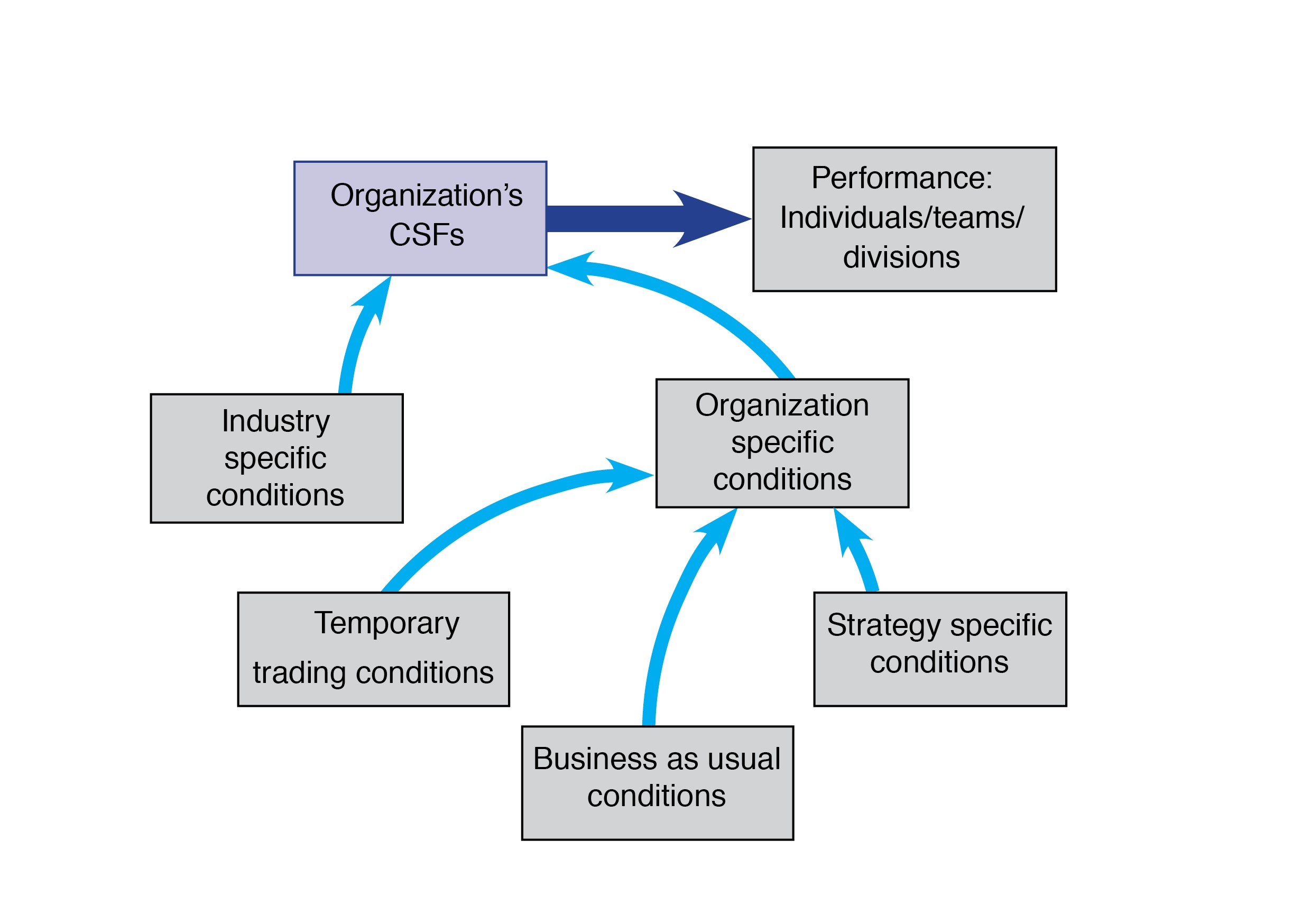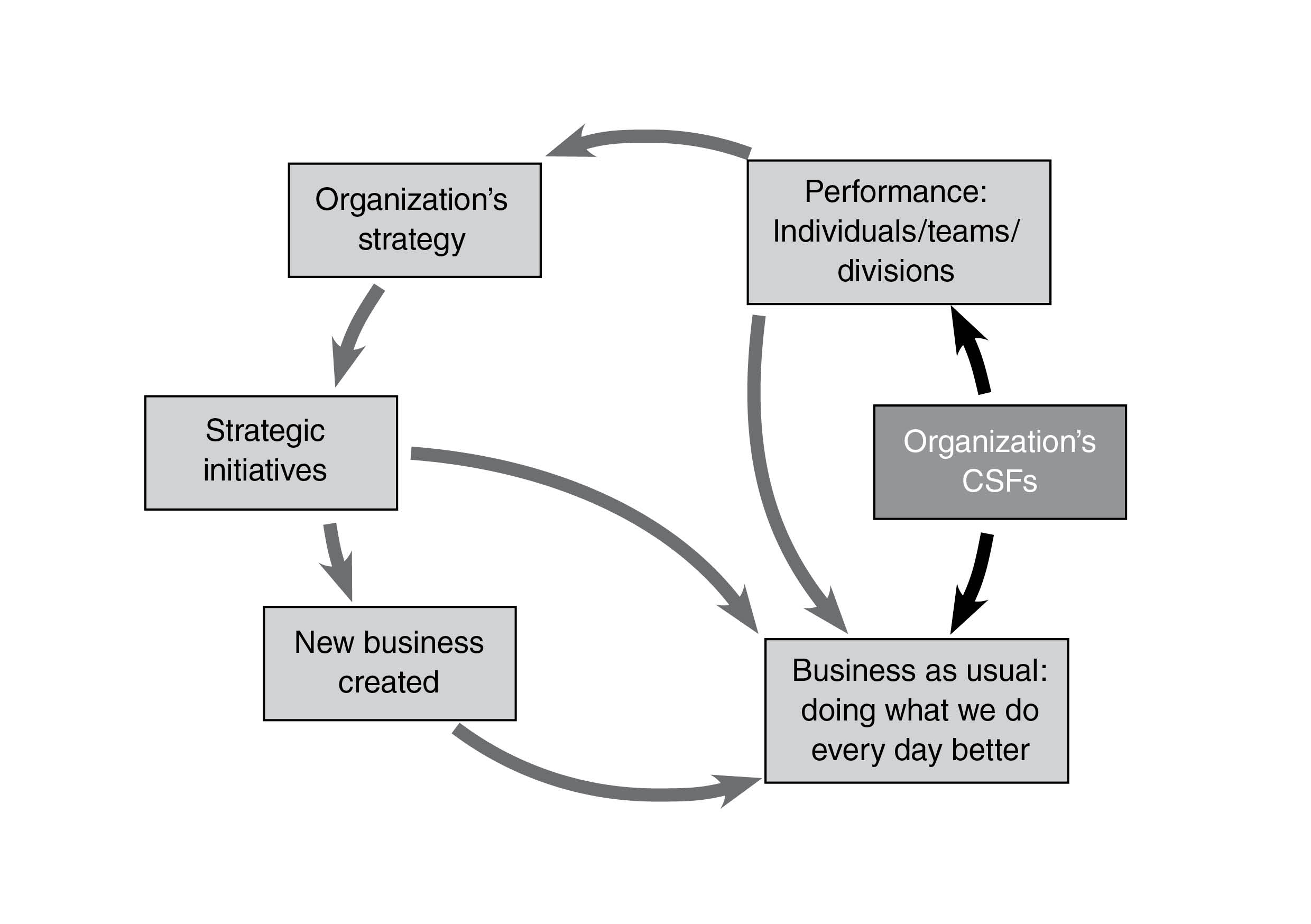Why ascertaining your Critical Success Factors is so important
By David Parmenter

Operational Critical Success Factors—the Missing Link
Where the operational CSFs are not widely known, each manager will have their own view as to what is important and prioritize work accordingly. Many counterproductive activities will thus occur based on the premise “What is important to me is important to the organisation”. For a chief executive officer to steer the ship, everybody needs to know the journey, what makes the ship sail well, and what needs to be done in difficult weather. The term critical success factors could be a major missing link in balanced-scorecard and other methodologies.
What Influences the Critical Success Factors?
It is important to understand the relationship between operational CSFs and strategy. An entity’s CSFs are impacted by a number of features. Most organisations will have one or two generic CSFs (e.g., “delivery in full, on time, to our key customers” “Recruit the right people all the time”), but each entity will also have some unique temporary conditions (e.g., a sudden drop in revenue will mean additional CSFs will be introduced until the funding crisis is over). Some CSFs will be determined by strategy, and others will be related to normal business conditions as illustrated in Exhibit 1.
EXHIBIT 1 What Influences the Critical Success Factors

CSFs Are the Source of All Meaningful Performance Measures
The traditional balanced-scorecard (BSC) approach uses performance measures to monitor the implementation of the strategic initiatives, and measures are typically cascaded down from a top-level measure, such as return on capital employed. This cascading of measures from one another will often lead to chaos, with hundreds of measures being monitored by staff in some form of BSC reporting application.
Getting staff to prioritize their daily activities in alignment with the organisation’s operational CSFs, is the “El Dorado” of management, the essence of modern management. Thus, instead of using the strategies as the source of your measures, clarify what your organisation’s operational CSFs are and then determine what measures would generate alignment to these operational CSFs.
The relationship between Critical Success Factors and Strategy
Whilst I am aware of the significance of a well thought through and executed strategy, the organisation’s critical success factors are more fundamental to the business as they focus the staff on what needs to be achieved every day. This aligns their efforts with those “business as usual” strategic initiatives.
Exhibit 2 shows that strategic initiatives, although their progress will be monitored, are not as fundamental to the business as monitoring the day-to-day alignment with the organisation’s CSFs.
EXHIBIT 2 How Strategy and the Critical Success Factors Work Together
 It is the operational CSFs, and the performance measures they inherently carry, that link daily activities to the performance of teams, business units and divisions.
It is the operational CSFs, and the performance measures they inherently carry, that link daily activities to the performance of teams, business units and divisions.
Purchase my latest toolkits which are on sale (over 40% reduction):
How to implement winning KPIs (180 page Whitepaper + electronic templates)
and buy the Database of Measures and Associated Success Factors 4th Edition
